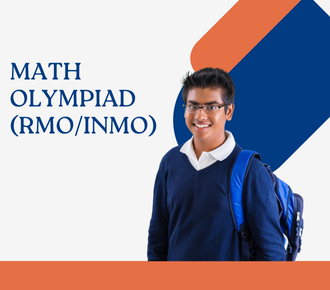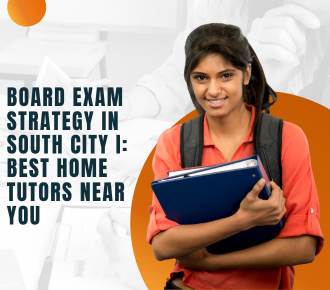- 9:30am - 6:30pm, Mon - Sun
- +91 7836034313
- R2-149 first floor M3M Cosmopolitan, sector 66 Gurugram 122102

The Math Olympiad is one of the most prestigious platforms for students passionate about mathematics. In India, the path begins with the Pre-Regional Mathematical Olympiad (PRMO), followed by the Regional Mathematical Olympiad (RMO), and then the Indian National Mathematical Olympiad (INMO). For students aiming to represent India at the International Mathematical Olympiad (IMO), excelling in RMO and INMO is the key.
This blog will serve as your complete preparation guide for the Math Olympiad (RMO/INMO) with chapter-priority, actionable strategies, syllabus breakdown, previous year questions (PYQs), common mistakes-to-avoid, and a free downloadable checklist.
We will also provide direct links to find tutors, free trial classes, pricing details, and home tutor options in Gurugram:
Before starting preparation, students must understand the exam structure.
PRMO (Pre-Regional Mathematical Olympiad): Objective-based screening exam.
RMO (Regional Mathematical Olympiad): Descriptive exam with 6–7 problems to be solved in 3 hours.
INMO (Indian National Mathematical Olympiad): Advanced problem-solving exam, gateway to the International stage.
Unlike school exams, these Olympiads test conceptual clarity, creativity, and problem-solving depth in mathematics.
Although there is no official syllabus for RMO/INMO, the following areas are most relevant:
Number Theory
Divisibility rules, modular arithmetic, Diophantine equations, primes, GCD/LCM
Combinatorics
Permutations, combinations, Pigeonhole principle, inclusion-exclusion, counting problems
Algebra
Inequalities, polynomials, equations, sequences and series
Geometry
Euclidean geometry, circle theorems, coordinate geometry, transformations
Functional Equations & Miscellaneous
Problems involving functions, inequalities, and logic-based reasoning
For detailed preparation, you can check out:
Here is how you should prioritize your preparation based on past year question trends:
High Priority
Geometry (30–35% of RMO problems)
Number Theory (25–30%)
Medium Priority
Combinatorics (20%)
Algebra (15–20%)
Low Priority (but must revise)
Functional equations, inequalities (10%)
PYQs are the most authentic way to understand exam patterns.
Prove that among any 10 consecutive positive integers, there exists an integer which is coprime with all the others.
Concept Tested: Number Theory (GCD, coprimality).
Let nnn be a positive integer. Show that there exist nnn consecutive positive integers such that none of them is a prime number.
Concept Tested: Prime gaps, factorials.
Working on such problems will sharpen your ability to connect concepts beyond the school syllabus.
You can download a PYQ set + checklist at the end of this blog.
Memorizing formulas instead of understanding concepts
Olympiads test reasoning, not rote learning.
Ignoring geometry proofs
Diagrams alone will not fetch marks, logical proofs are necessary.
Skipping combinatorics
Many students underestimate counting problems, but they form a crucial part of the exam.
Not practicing writing detailed solutions
Since RMO/INMO are descriptive, presentation and clarity matter.
Last-minute cramming
Olympiad prep requires consistent practice, not last-minute rush.
Daily Practice Routine
Solve 2–3 challenging problems daily.
Dedicate at least 1 hour to geometry proofs.
Weekly Mock Practice
Attempt 1 mock RMO-style test every week.
Analyze solutions deeply.
Resource Utilization
Refer to books like Challenges and Thrills of Pre-College Mathematics and Problem-Solving Strategies by Arthur Engel.
Guided Learning
Work with expert mentors through Olympiad Tutors.
Try a Free Trial Class.
Cover Number Theory and Geometry basics.
Solve PYQs (2015–2018).
Focus on Algebra and Combinatorics.
Attempt mixed problem sets.
Mock tests twice a week.
Revise key theorems and shortcuts.
Here’s what you will get in our free checklist:
Complete Olympiad Maths Syllabus summary.
Chapter-priority study plan.
Common mistakes-to-avoid.
PYQ tracking sheet.
👉 Download Free Checklist Here
Self-study is powerful, but expert guidance saves time and avoids confusion. A mentor helps with:
Solving doubts faster.
Providing curated Olympiad Maths Notes.
Regular mock exams and evaluation.
You can explore:
The Math Olympiad (RMO/INMO) is a gateway to international recognition and a test of true mathematical talent. With the right mix of concept clarity, problem-solving practice, previous year questions, and expert guidance, any student can excel.
Focus on geometry and number theory first, practice PYQs regularly, avoid common mistakes, and stay consistent. Download our Olympiad Checklist to structure your preparation effectively.
With dedication, discipline, and guidance, your dream of excelling in the Math Olympiad can become reality.








